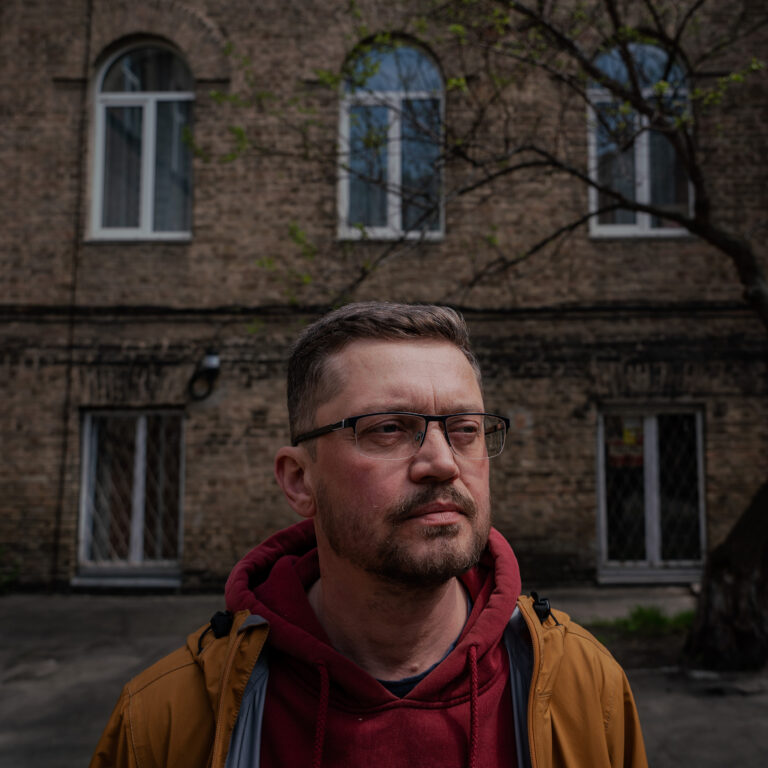
Filming in Mariupol, several frames of the Azovstal plant, and prophecy of the full-scale war — this is how the film Atlantis was created.
Editors’ note
This story is a part of the partner project between Ukraїner and Local History.The full-scale Russian invasion of Ukraine is now prompting a rethinking of the Atlantis metaphor. Is it relevant after atrocities in Bucha and Mariupol? We are talking to the film’s director Valentyn Vasyanovych.
Love conquers death
– I treat cinema as a tool that helps me focus on the subject I want to explore. When you start collecting information, meditating, thinking, certain things are revealed to you. They are apparent, but you do not notice them immersed in routine life. Cinema helps me see what is essential.
It was exactly the same with Atlantis. While working on the film, it became clear to me that Ukraine would not be able to avoid a new “hot” phase of the war. However, I thought that everything would happen only in the East of Ukraine, and that it would be, so to speak, a conventional war.
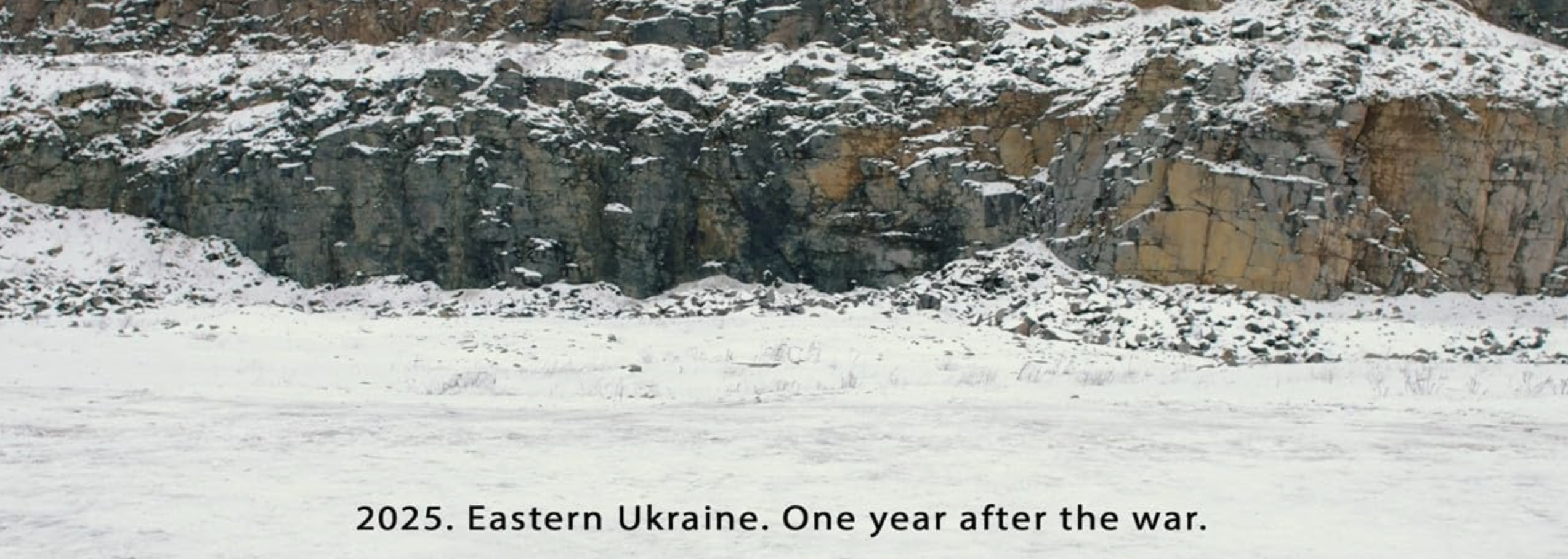
From the movie. Source: IMDB
In the credits, it is mentioned that everything takes place in 2025, a year after the war’s end. I want us to win faster. Still, it can be different.
– The Atlantis metaphor is about space: hidden, invisible, disappeared?
– Yes, a destroyed territory that once flourished and was self-sufficient. Today it is happening in Mariupol. We shot 70% of the material there. The Azovstal plant appears at the beginning and at the end of the film. It is terrible to watch all this today. I could have not imagined that everything would turn out so tragically.
– What was your Mariupol like? How did the city appear through the lens of a film camera?
– This was a very gentle city. I remember the sea and the evenings at the shore well. A boom operator Mykola Striletskyi came with us. He brought an amp and a guitar, so we arranged jazz evenings by the sea. It is impossible to forget.
We were living in Mariupol for three months and had integrated into the city. Of course, the filming process was complicated and stressful. Endless work from morning to night and lack of sleep, but I was getting good material, and I felt happy about it. On our way, we met incredible creative people from Mariupol. The locals were willing to support us, so I have the best memories of the city, especially about the Armed Forces who helped us. As we later learned, it was primarily them who held the city’s defense.
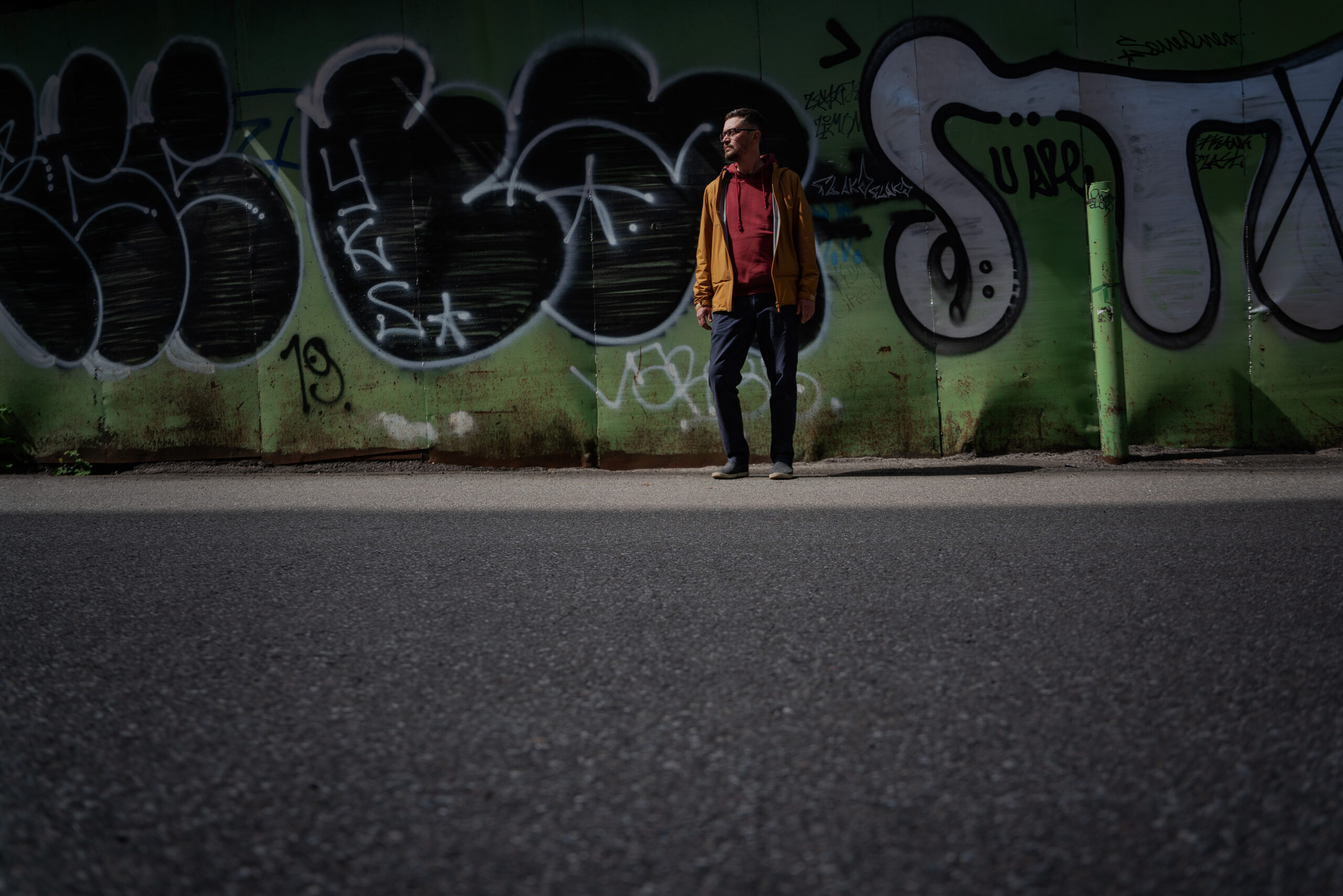
I also recall the first day in Mariupol. We arrived at the station, got into a taxi, and the local taxi driver immediately started fanning the flames by bringing up some “vatnik” (mindless following of Russian propaganda – ed.) topics. However, there were four of us, so we quickly knocked his pride out of him, and he drove us to the hotel in silence.
When we began to communicate more with the locals, it was explained to us that quite a few of them were indeed pro-Russian. I am sure that the situation changed radically after the start of this new phase of the war. Now everyone has seen and understood what the “Russian World” is about and what sentiments towards Russia and the Soviet Union lead to. I’m sorry it’s too late. The city is already in ruins.
– Can Atlantis be cleaned and rebuilt?
– I really believe in this, especially when seeing the political situation and the support of the entire world, and the message of our partners, particularly the USA. I am sure that the city will no longer be an industrial urbanscape. I do not think that Illich Steel and Iron Works or Azovstal are to be rebuilt. I assume that the money will be invested in infrastructure projects. Maybe Mariupol will be turned into a resort area, as it has everything for that.
– Today, there is poisoned and destroyed land in Bucha, Irpin, Hostomel, Borodianka, Chernihiv, Okhtyrka, Kharkiv… How can we deal with these facts? If only it could not be about the whole of Ukraine.
– This will not happen in any case. Our people are smart and have a thirst for life, so Bucha, Irpin, Hostomel and other cities around Kyiv will quickly recover. I hope it will be the same with Chernihiv and Sumy. I don’t know about Kharkiv, it is not yet clear how all this will end there.
Whereas Mariupol was destroyed entirely. That is where the basis for building a new life will be. Unfortunately, this new life will drag behind a trail of loss and pain… I still don’t understand how to work with it and how people who have seen it all will be able to stay there. No one knows that.
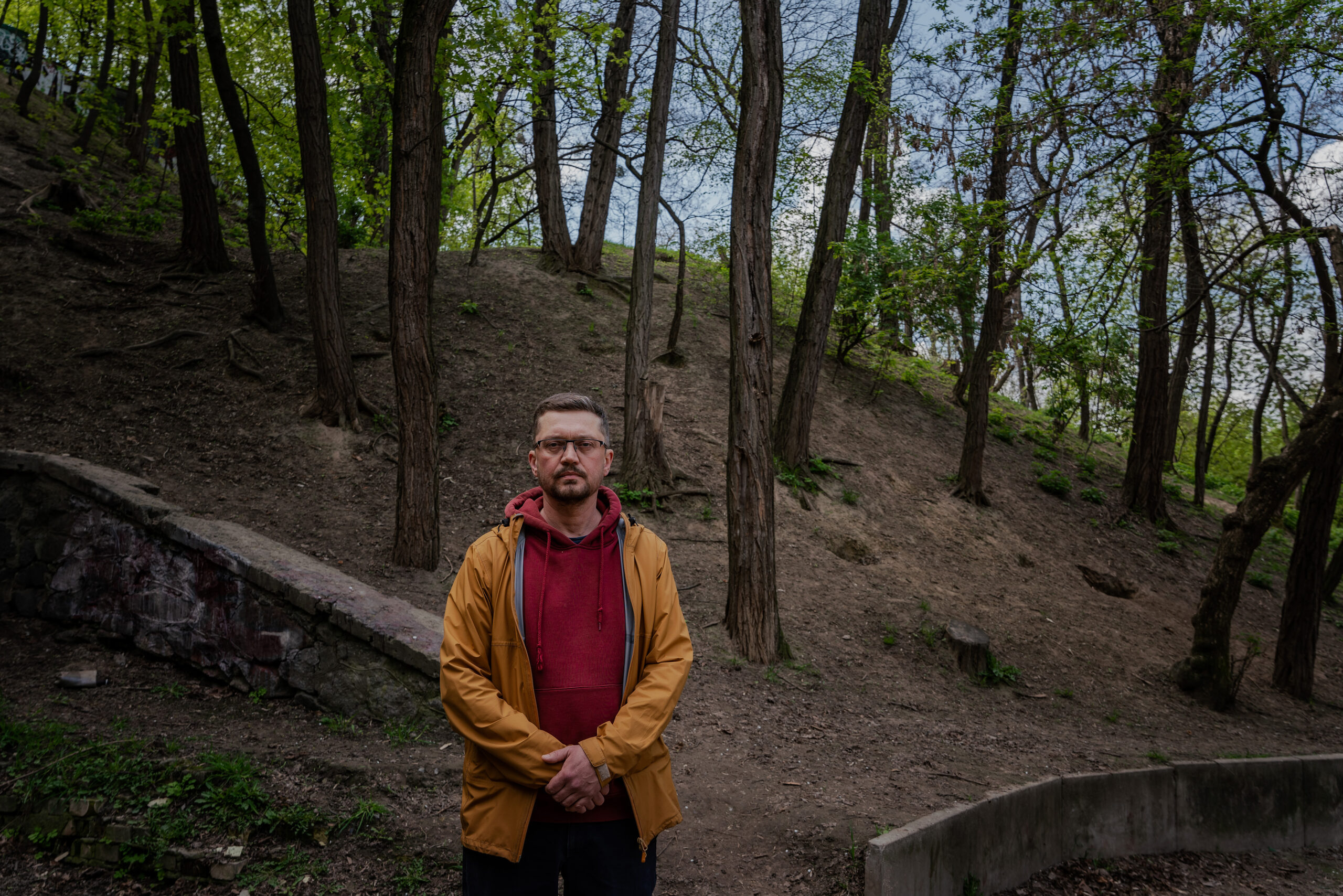
– In Atlantis, there is a scene where the heroes make love in a car that transports corpses in black bags. Poet Kateryna Kalytko reflected on this scene: we will all have to live and love, knowing that our dead ones are next to us. How will we live, love, and create after this?
– Many families have suffered losses, and they will have to start life over. Shootings of civilians, torture, and all these crimes are too harrowing stories to accept. I really feel for all the people, and I don’t know how they will survive all this. Nevertheless, a human being is a creature that must think positively about the future. You have to sit down and die if you don’t do this.
There is no other way than to live and love, to create life. The main message of Atlantis is that love conquers death.
A chance to break up a failed empire
– How do you pull yourself together?
– Well, I’m not in the line of fire after all. My family is safe, and I go on doing what I know how to do. Maybe it will help make a film that is important to other people. This is how I survive: being here and now.
– What is victory for you?
– This is a great chance to destroy this failed empire. If we do not reach the end, the threat and desire to destroy Ukraine will always come from the territory that is today called the Russian Federation. Russia must be defragmented and made into four dozen separate states and nations that would develop separately and build relations among themselves.
If we stop at some “peace agreements” and cease eliminating the empire, then in 20 years, over one generation, there will be a new idiot eager to start all over again. It appears obvious to me.
I have no sentiments towards the Russian population that commits these crimes. I see that there are currently attempts to shift all responsibility to Putin as the Führer, saying that ordinary people are not accountable. However, I am aggressive: we must go to the end, destroy Russia, and deconstruct this entity.
– Is this what we, Ukrainians, should do?
– And who else, if not us? This is our historic mission. Of course, with the help of our Western partners and machines that bring death to the enemy. If we stop today, our grandchildren will have to pay the price. I do not want future generations to experience Bucha or Mariupol again.
– What changes is Ukraine going through? What are we becoming?
– We are not becoming anyone else. Each person basically acts more contrasting and shows oneself more clearly. People do incredible things. I admire them. For example, film director Oleg Sentsov, who went to war and held a position somewhere near Chornobyl. Or film director Alisa Kovalenko, who joined a volunteer battalion.
I’m doing what I am used to doing, and that is filming. I am gaining an emotional and intellectual experience that I have never had before. All cinematographers today face a huge problem – what we planned before is now completely irrelevant.
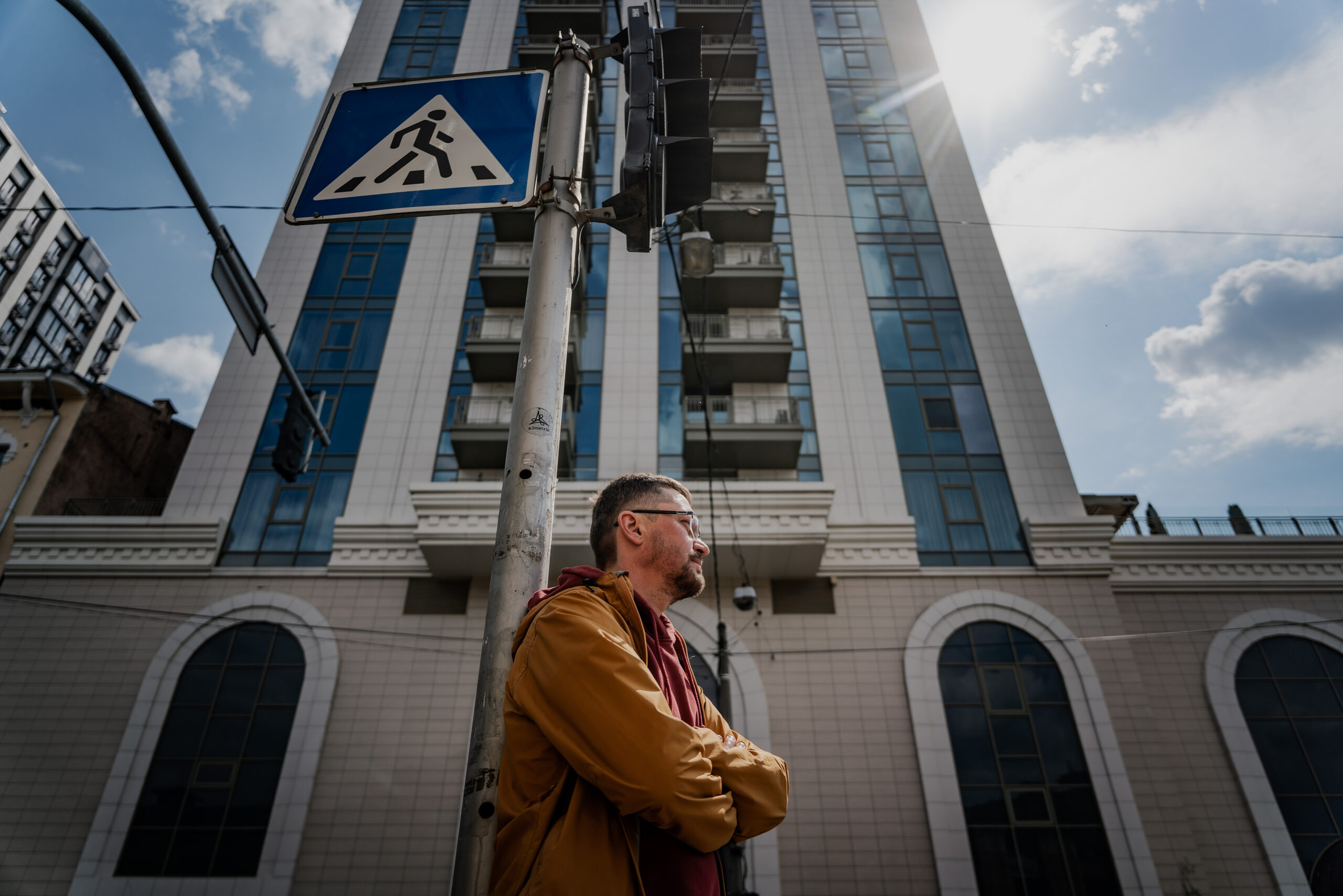
– What are you filming during these war days?
– I am filming most of the material in Bucha, namely the textures, backgrounds, destroyed houses, and horrifying war locations. There are a few frames that I like. There are a few stories I’m following, but I don’t know if anything will come out of it. My experience suggests that you just need to film. This can be called a directed documentary. If it doesn’t work out, then there is at least a notebook of scenes that can be worked out for a feature film.
I feel that I still have to live through it. I need time. I can’t take it all in so drastically. Perhaps I will return to my original idea about people living in anticipation of war and impending threats, in order to get a story about people meeting this war and proving themselves in various ways. Among my friends, many were expecting the war and preparing for it. And they all did it differently. These are tragicomic stories, which later unfolded into a terrible drama.
– If we look at the films made before February 24 about the war and Donbas, are they relevant today, in the modified context?
– They remain relevant. I understand that my latest film, Reflection, was a bit ahead of its time, as was Atlantis. For example, there are scenes with mobile crematoria, which we know today to be in Mariupol. There are scenes with inhuman torture. If you remove the credits that the action takes place in 2014 in Izolyatsia, then the film will simply be the story of a person who has experienced extreme violence and is trying to adapt. I think there will be more stories like this in future Ukrainian films.
– Is it true that journalist Stanislav Aseyev, who was a prisoner of Izolyatsia, starred in Reflection?
– Yes, and he played it well. Stas a talent for acting. Unfortunately, his scene was not included in the final cut. Stanislav Aseev was our consultant. We showed him everything we shot and waited for verification because we were trying to make the film authentic.
Editors’ note
The name "Donbas" is not a correct description of the region in the east of Ukraine, although it is the most commonly used in the media and colloquially. However, it has its roots in Russian propaganda to artificially separate the Donetsk and Luhansk regions and the historical region of Donnetchyna from the rest of Ukraine. The term "Donbas" is geological and should only be used to refer to the Donetsk coal basin. In this article, we are not correcting the name on purpose, because it's an interview.“Good Russians” is a fake
– How important is the voice of Ukrainian cinema in the international context?
– It’s extremely important. Film d’auteur of excellent quality will be noticed by the world, and the director will get a platform where he can convey everything he wants, both at the level of the story he presents and at the level of communicating with journalists. This is how you can draw attention to crucial ideas.
It is no accident that Russia spends so much money on its cinema and television. This helps them to impose their messages. Often in Q&A sessions, I have to refute them and tell the truth about the war. People are often shocked, and controversy arises when you have to convey your arguments and defend your position clearly. The day after the premiere, endless interviews begin, and I have to repeat the same thing because everyone has the same questions. And I talk again and again about war and cruelty which are unacceptable in the 21st century.
– What are the leading Ukrainian film voices in the world?
– We have powerful voices. For example, this year, two Ukrainian films went to the Cannes Film Festival: Butterfly Vision by Maksym Nakonechnyi and Pamfir by Dmytro Sukholytkyy-Sobchuk. One of these films is about war, while the other is not. But it doesn’t matter. Anyway, after the film screening, they will ask about Ukraine, and the director will speak on behalf of Ukraine.
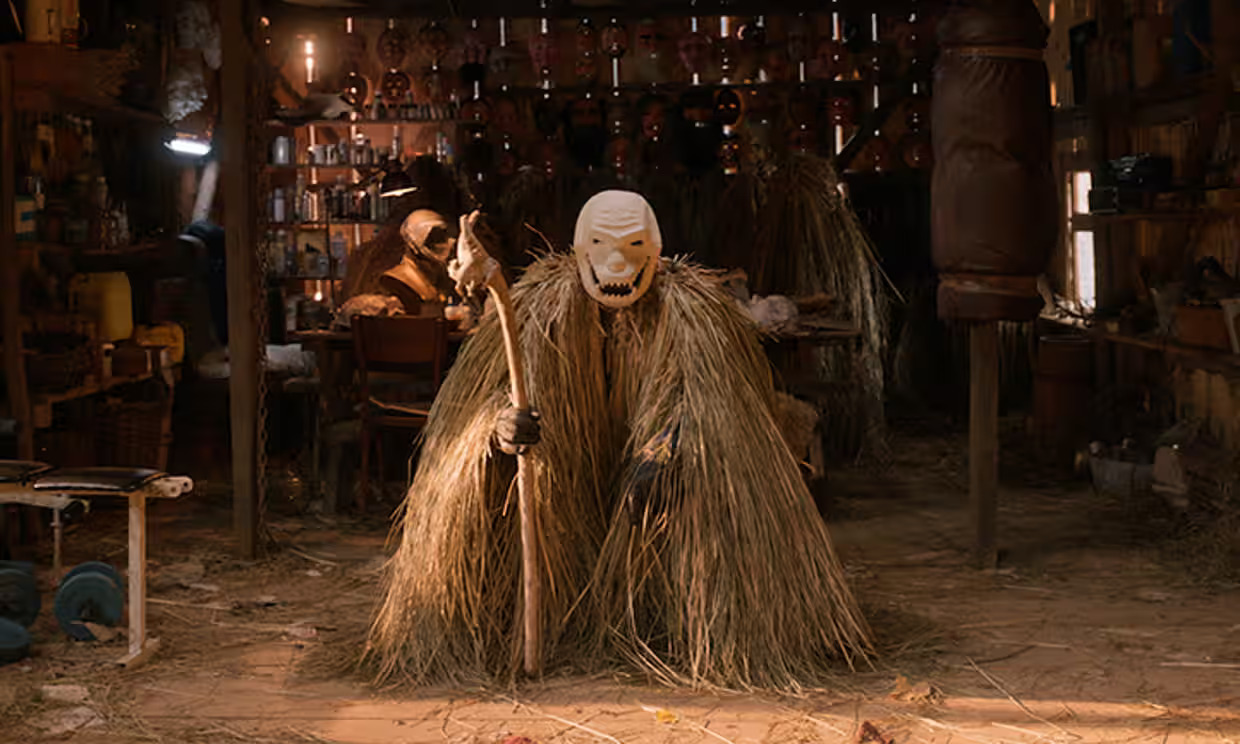
Eight years ago, Ukrainian culture wasn’t present in the world. Now it exists and is presented at all major festivals. Ukraine is trending. It’s great because now the world can see that Ukraine is a civilized country with developed cinema. This speaks of us as a cultured nation.
– What messages should be mainly promoted on such platforms?
– The sole message that we require today is that Ukraine is fighting for its independence against the imperial ambitions of Russia. I am sure that our directors will talk about it.
The topic of boycotting Russian culture will also arise. I fully support this boycott. A lot of money was poured into Russian culture and the promotion of its imperial narrative. Therefore, I am aware this topic will cause a controversy due to the powerful Russian lobby. In addition, it is irritating for Russian directors and cultural managers. And I find it exciting to follow.
– Can our cinematographers get into the highest elite cinema circles, where Loznitsa, Serebrennikov, and Khrzhanovskyi are currently present?
– We have already been to those circles. Now we have to work on our reputation. People look at every director and their progress. What counts is whether you can tell powerful and exciting stories.
– And for us to take our rightful place, is it enough just to make a good film?
– We need support to create films and promotion budgets to hire awesome European PR people capable of working with festival media. It is quite expensive, and not everyone understands that it is necessary to invest money. Perhaps Derzhkino (Ukraine’s state film agency — ed.) will slowly develop in this direction.
On the other hand, I don’t know if there will be budgets for new films because everything needs to be rebuilt. I don’t want to believe that culture will be financed by the residual principle. Culture is much more important than the economy. It forms a nation.
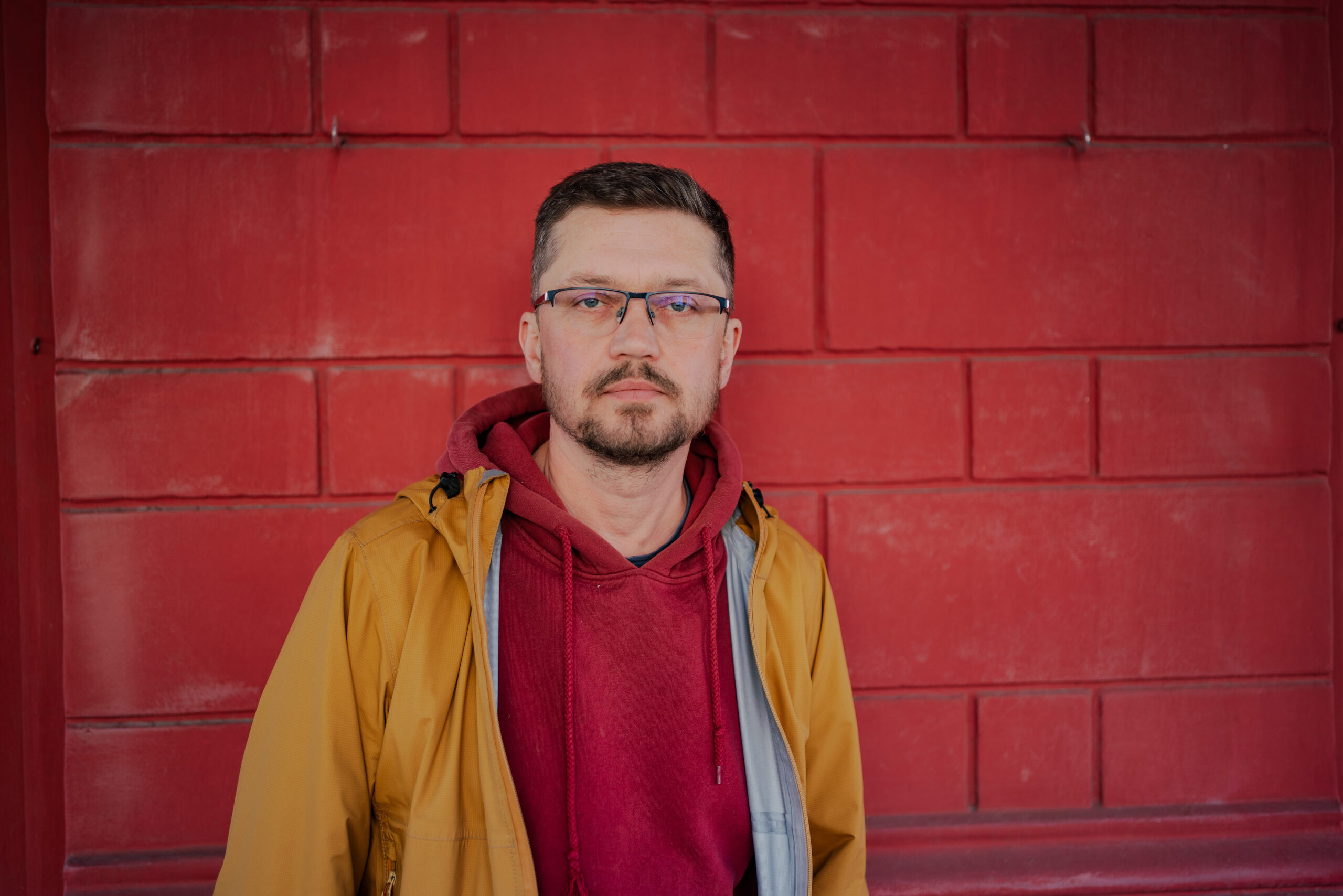
– Is it worth participating in film festivals where Russian films and Russian directors are present?
– This is a dilemma. For example, there are two films at the German GoEast festival shot by Sergei Loznitsa and Taras Tomenko respectively. Does this mean that Taras Tomenko should not go with his film? One has to look at the festival and its history. One should not go to openly pro-Russian platforms created with Russian money, it makes no sense. Instead, going to large and prestigious festivals and arranging a discussion is necessary.
– What should be done to prevent only Russian films on this war, and include Ukraine on more international platforms?
– I think that Russian filmmakers, if they will have cinema at all in the near future, will not talk about the war in Ukraine in their films. First, with what budgets will they create them? State funding will support so-called “North Korean” cinema. There will be strict censorship. Only directors who fled from Russia will shoot something. If Russian oligarchs like Fridman have money left.
This war is our topic. It is we who will raise it and actualise it. We have a lot to say.
– What to do with all the “good Russians” who left Russia, created their oppositional image, and spoke out against the boycott of Russian culture?
– We don’t need to do anything with them. We should just show our negative attitude towards them and tell our story. This entire “liberal” community was brought up and nurtured by the regime to create the illusion of “freedom of speech” and “democracy”. All of this was dosed export product. This is a fake.

